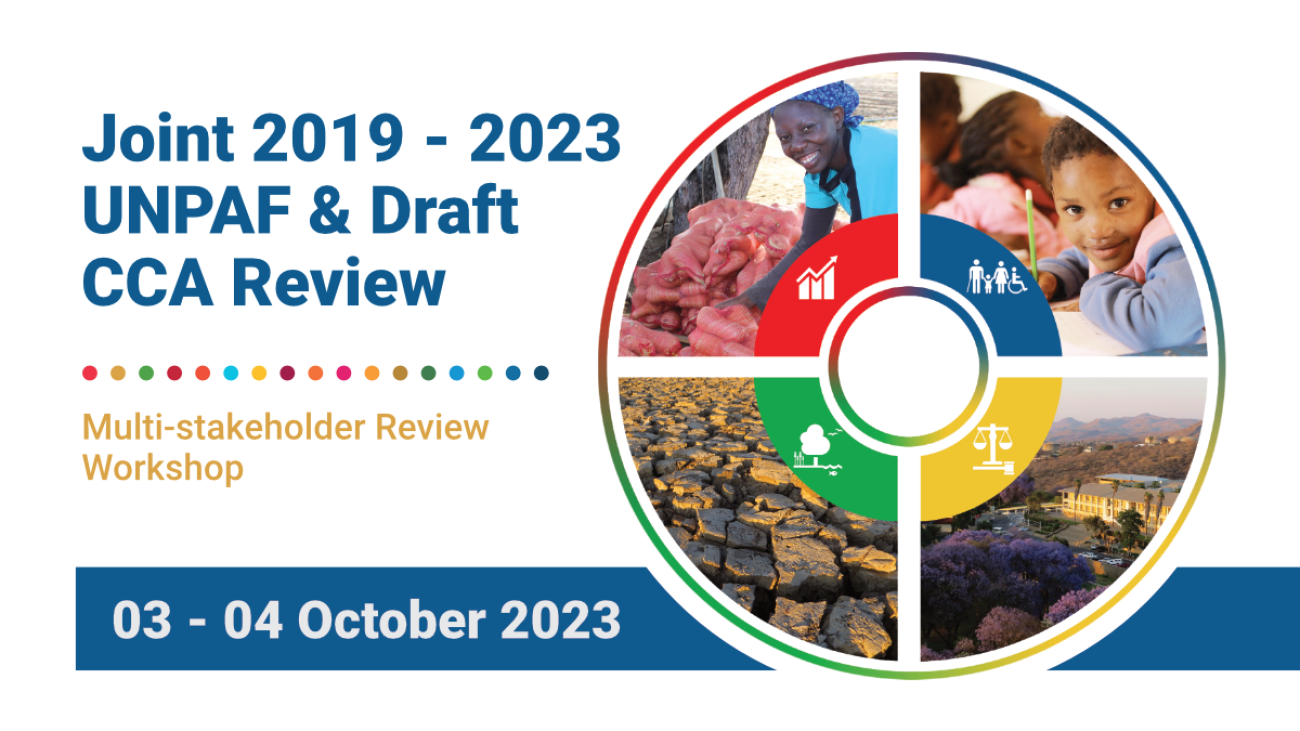Namibia and UN Forge New Partnership for Sustainable Development

Namibia and UN Forge New Partnership for Sustainable Development
Windhoek, Namibia - October 6, 2023
During a critical review meeting of the United Nations Partnership Framework 2019-2023 and Common Country Analysis, the United Nations and its partners engaged in a comprehensive reflection, assessing accomplishments, lessons learned, areas for growth, and strategies to incorporate into the new Cooperation Framework, 2025-2029. This introspective session, occurring at a pivotal juncture for Namibia, coincides with crucial national developments, notably the 2023 Population and Housing Census and the formulation of the National Development Plan 6 (NDP 6).
The review meeting served as a forum for profound introspection, emphasizing the UN's commitment to remaining responsive and adaptive to Namibia's evolving needs. As the nation prepares for transformative endeavors encapsulated in the NDP 6 and other parallel initiatives, this collaborative effort between the Government of Namibia, partners, and the UN stands poised to catalyze positive change, fostering a future where sustainable development is not just an aspiration but a tangible reality.
Ms. Hopolang Phororo, UN Resident Coordinator, set the stage with a resounding message of evolving from a traditional development assistance approach to a dynamic cooperation framework. "This pushes us towards strengthened joint planning and programming beyond sectoral approaches; this we cannot achieve alone," she emphasized, aligning the partnership with Namibia's National Development Plan 6.
This renewed cooperation, informed by lessons learned and achievements across four key pillars, is poised to accelerate essential Sustainable Development Goals (SDGs) and address critical national priorities. These four pillars encompass Economic Progression, Social Transformation, Environmental Sustainability, and Good Governance.
Ms. Wilhencia Uiras, Executive Director of the National Planning Commission, underscored the lasting impact they aim for, saying, "I want my future generations to recognize the positive changes initiated in 2023.”
Regarding Economic Progression, according to the Namibia Statistics Agency, Small and Medium Enterprises (SMEs) now play a pivotal role in the nation's economic landscape, accounting for 12% of Namibia's GDP and providing livelihoods for over 200,000 individuals. Moreover, the agriculture sector has witnessed significant advancements with 5,000 hectares of land now under irrigation.
On Social Transformation, in the education sector, there's a commendable milestone with 72.7% of all learners across the nation now enrolled in the primary phase. Additionally, The national budget allocated to non-contributory social protection has increased to 11.5%, surpassing the target of 5%. The number of identified potential victims of trafficking has increased to 23 per year, surpassing the target of 18 per year. Health system capacity was strengthened, and it was able to provide quality health and nutrition services and effective detection and control of outbreaks.
On Environmental Sustainability, tangible progress has been achieved in disaster management, exemplified by the significant reduction in internally displaced individuals from 3,900 to 2,000. Furthermore, all 14 regions of Namibia have taken proactive measures by developing disaster risk management/contingency plans, illustrating a comprehensive approach to potential emergencies and disasters.
On Good Governance, emphasizing transparent and participative governance, there's a laudable achievement in policy engagement, with 7 policies reviewed in collaboration with civil society, exceeding the target of 5. This underscores the nation's commitment to fostering transparency and ensuring that policies resonate with all stakeholders.
Both the UN and Namibia are committed to furthering their collaboration, building on the achievements and addressing challenges to ensure sustainable development. This commitment reflects their shared vision for a prosperous future and will be encapsulated in the UN Sustainable Development Cooperation Framework, 2025-2029.











